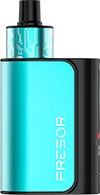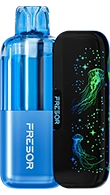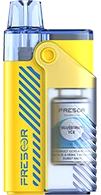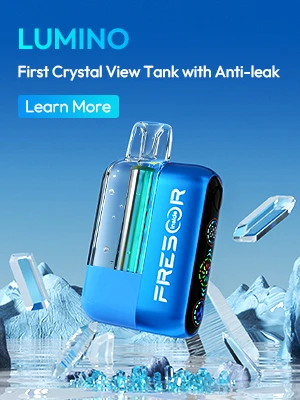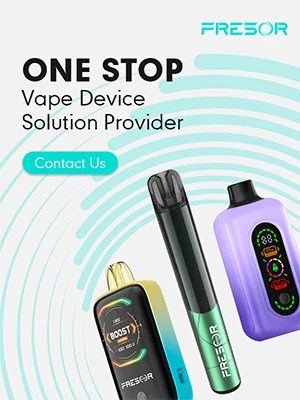How 2024 Vaping Laws in Mexico Will Affect You?

8 August 2024
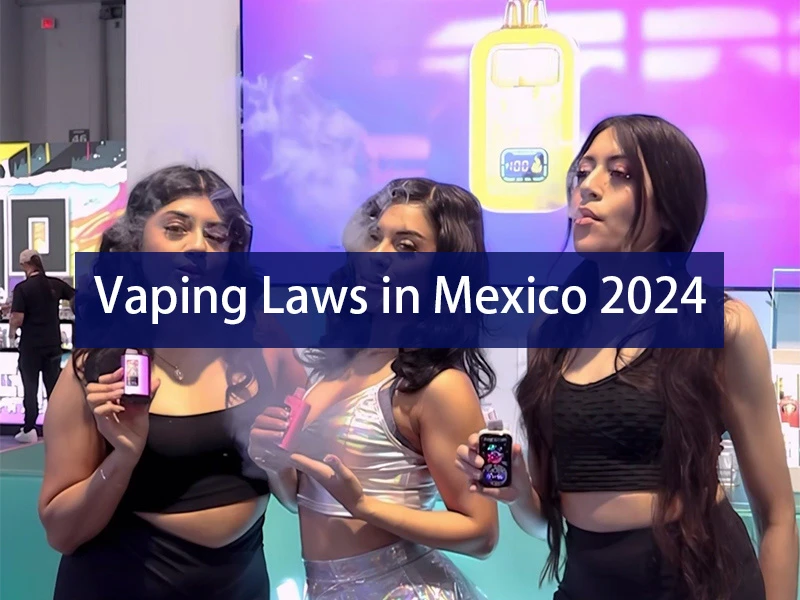
As 2024 approaches, significant changes in Mexico's vaping laws are on the horizon, and these modifications are poised to impact consumers, retailers, and manufacturers alike. With the nation grappling with the implications of public health concerns, legal battles, and economic factors, understanding these new regulations is crucial. In this article, we will delve into the Mexico vaping laws, dissect their potential consequences, and offer insights on how they could affect your daily life and business operations.
Can You Buy Vapes in Mexico?
As of now, rules ban smoking in public places. Plus, purchasing vapes and other electronic cigarettes in Mexico is prohibited under a presidential decree. However, recent rulings by the Supreme Court have deemed this ban unconstitutional, giving hope to manufacturers and retailers alike.
For Manufacturers
Manufacturers face more stringent smoking laws. Manufacturing vaping products in Mexico is heavily restricted. Breaking these rules can result in punishment. Manufacturers cannot advertise e-cigarettes freely. Advertising restrictions include heavy fines, reaching up to USD 8,000.
For Retailers & Distributors
Retailers and distributors also encounter significant hurdles. Only those involved in court cases can legally sell e-cigarettes or less harmful nicotine products. Retailers must bring a court case to lift the ban. Selling vaping devices to minors is not allowed and will result in punishment.
Mexican government applies severe fines of up to USD 2,000 to violators. Legal disputes often require a lot of time and money.
For Consumers
In Mexico, people can legally bring vapes for their personal use. There are restrictions on the quantities you can import. Using e-cigarettes in public spaces can result in fines. Personal use remains within designated smoking areas. Buyers should stay informed of changing regulations. Consumer rights continue to evolve with legal rulings.
The 2024 Vaping Laws in Mexico

As Mexico navigates evolving vaping regulations, 2024 promises new laws impacting the industry. These changes will redefine how manufacturers and distributors interact with vaping products. Below we'll explain the changes so you can prepare for what's coming.
Licensing and Permits
Retailers must meet stringent requirements to obtain licenses for selling vaping products. They need to show that they follow safety and health rules. Retailers must also ensure that their premises are suitable for selling such products, adhering to local zoning laws. If you don't meet these requirements, authorities may deny your license and impose significant penalties.
Guidelines to Sell E-cigarettes
Distributors face rigorous guidelines to legally circulate vaping products. They must register their businesses and products with relevant health authorities. Distributors must also maintain detailed records of transactions, ensuring the traceability of their products. This is crucial to avoid breaching product distribution laws and facing severe sanctions.
Application Process for Electronic Cigarettes Licenses
The application process for obtaining licenses involves multiple steps. Retailers and distributors must submit detailed documentation proving compliance with all regulations. This requires safety certifications, proof of financial stability, and business plans. Licenses are subject to annual renewal, requiring continuous adherence to legal standards. Any deviation could result in license revocation and fines.
Product Standards and Restrictions

In Mexico, people need to be at least 18 years old to buy or use vaping products. Retailers must thoroughly check buyers' ages. Selling electronic cigarettes to minors is a criminal offense, punishable by hefty fines and potential imprisonment.
Packaging and Labeling Guidelines
The regulated vaping market adheres to strict packaging and labeling guidelines. Packaging must include clear warnings about the potential health risks associated with vaping. Labels must display information about nicotine content and other key ingredients. Misleading or false labeling is prohibited, and violators face significant penalties including product seizures and business fines.
Prohibited Ingredients and Products
The law prohibits certain ingredients in vaping products. These include but are not limited to, harmful additives and non-approved flavours that may appeal to minors. Manufacturers and importers must follow ingredient limits to avoid legal issues. Products found containing banned substances will be confiscated, and their sellers may face legal action.
Marketing and Advertising Regulations
Marketing and advertising of vaping devices face more stringent smoking laws. Ads cannot target minors or imply that vaping is a safer alternative to smoking. Advertising in public spaces, such as billboards and public transport, is prohibited. Any form of promotional content must include health warnings and avoid appealing to young audiences.
Compliance with Local and National Regulations
Companies must ensure that their marketing strategies comply with both local and national regulations. Follow state and local advertising laws. Non-compliance can lead to severe fines, business closures, and long-term legal ramifications. Marketers must stay updated on legislation changes to maintain lawful promotional activities.
Supreme Court Ruling on Mexican Vaping Laws

Mexico's High Court recently addressed the controversial subject of the vaping industry by ruling on the constitutionality of the presidential decree banning e-cigarettes. In a landmark decision, the Supreme Court of Justice determined that the ban violates the right to freedom of commerce, explicitly highlighting the right to seek legal protection against such decrees.
Retailers previously affected by the ban can now argue their case in court to continue selling e-cigarettes, albeit individually. This ruling underscores the significant impact that court decisions can have on public policy, potentially paving the way for legislative change.
How the Ruling Affects the Vaping Industry
The decision of the Supreme Court does not immediately lift the smoking ban on e-cigarettes across the entire nation. Instead, it applies only to those businesses that were parties to the specific case. This leaves the industry in a precarious position, as other businesses must also pursue legal actions to defend their right to sell these products.
Notably, Alberto Gómez Hernández of the World Vapers’ Alliance articulated that the decree violates not only commercial freedoms but also the right to health and personal development of Mexican adults. His statement encourages other retailers to challenge the vape laws and seek similar legal protection.
Despite this victory, the general prohibition remains intact, signaling that further legal challenges and public discourse will be necessary to effect widespread change. Critics argue that the smoking ban has exacerbated public health issues and driven the market underground, controlled by illicit entities.
Advocates like Gómez Hernández suggest Mexico should look to models like Sweden and the UK, which utilize vapes as a smoking cessation tool. As legal battles continue, the recent ruling serves as a crucial precedent, illustrating the tension between public health policies and individual freedoms in Mexico's legal landscape.
Import and Sales Restrictions

In Mexico, people can bring electronic cigarettes for personal use, but there are limits on how many they can bring. Bringing e-cigarettes for business reasons is still not allowed.
Retailers must navigate a complex regulatory landscape if they wish to sell vape products. The Federal Commission for Protection against Sanitary Risks (COFEPRIS) sets the standards that vaping devices and e-liquids must meet before retailers can offer them for sale.
Although Mexico's Supreme Court declared the blanket ban on e-cigarette sales unconstitutional, these products still face restrictions. Retailers must personally contest the ban in court if they want to sell e-cigarettes.
This Supreme Court ruling only applies to specific cases and businesses that successfully argue the unconstitutionality of the ban. For now, Mexico keeps the general ban in place for most retailers, but the high court's decision indicates potential changes regarding the regulation of vape products in the future.
Rules for Retailers
Retailers looking to sell e-cigarettes must comply with various regulations. They must secure approval from COFEPRIS, follow advertising restrictions, and avoid selling to minors. While the Supreme Court ruling provides an avenue for challenging the sale ban, it requires a legal process to obtain permission to sell. This system places substantial responsibility on retailers to uphold the law and protect public health.
Enforcement and Penalties
Enforcing vaping regulations in Mexico involves a multifaceted approach aimed at ensuring compliance with established laws and protecting public health. The Federal Commission for Protection against Sanitary Risks (COFEPRIS) oversees the market to ensure that all vaping devices and e-liquids meet strict health and safety standards. Those who break these rules may receive harsh penalties, such as fines, confiscation of products, and even closure of their businesses.
Retailers caught selling non-compliant products or marketing to minors face particularly harsh consequences. In addition to financial penalties, repeat offenders may have their business licenses revoked, effectively shutting down their operations. Importing vaping products for commercial purposes without the necessary approvals from COFEPRIS can lead to the confiscation of the goods and legal action against the importers.
The Supreme Court's recent ruling on the constitutionality of the ban adds another layer of complexity. While the decision allows specific businesses to challenge the sales ban, it also implies that enforcement will be carried out on a case-by-case basis. Retailers must carefully navigate this legal landscape, as failure to comply with any aspect of the law could result in significant repercussions.
Given the stringent regulations and the potential for severe penalties, businesses must stay abreast of both local and national laws. Employing legal counsel to interpret the regulations and represent them in court may prove beneficial for those intent on selling vaping products. As the legal environment continues to evolve, continued vigilance is crucial for operating within the legal frameworks set forth by Mexican authorities.
Impact on Market
The vaping industry in Mexico faces significant challenges as vape businesses navigate the stringent regulatory environment. Despite the Supreme Court's ruling, which allows some businesses to seek legal protection against the ban, the industry operates under a cloud of uncertainty.
Many retailers continue to face obstacles, including obtaining the necessary approvals from COFEPRIS and complying with advertising restrictions. These hurdles make it difficult for businesses to thrive, and many are pushed toward operating within a huge black market controlled by illicit entities.
This underground market not only poses risks to public health but also undermines the efforts of legitimate businesses striving to adhere to the law.
Access for Vapers
For vapers, access to products remains limited due to the ongoing restrictions and the complex legal landscape. Those trying to quit smoking may find it challenging to obtain reliable and regulated vaping devices. The limitations on the sale and import of e-cigarettes impede consumers' ability to purchase quality products easily.
Consequently, some vapers may resort to the black market, where the quality and safety of vaping devices and e-liquids cannot be guaranteed. This scenario poses substantial risks, as the products available illegally may not meet health and safety standards, potentially endangering users.
Overall, the impact on both vape businesses and vapers necessitates ongoing advocacy and legal challenges to improve market conditions. By following in the footsteps of countries like Sweden and the UK, which successfully use vaping as a tool to quit smoking, Mexico can create a more supportive environment for vapers and legitimate businesses alike.
Comparison with Other Countries
When examining Mexico's regulatory landscape for e-cigarettes and vaping products, it is insightful to compare it with the approaches taken by other countries. Nations like Sweden and the United Kingdom have adopted a more progressive stance, treating vaping as a harm-reduction tool rather than criminalizing it.
Sweden
In Sweden, for instance, e-cigarettes are heavily regulated but legally available for purchase. The Swedish government has implemented strict guidelines regarding the manufacture, marketing, and sale of these products.
Nonetheless, their regulatory framework acknowledges the role of e-cigarettes in smoking cessation, resulting in the first smoke-free country. Retailers are required to comply with rigorous standards to ensure safety and quality, but they operate within a system that supports the legitimate sale of vaping products.
United Kingdom
Similarly, the United Kingdom has embraced a pragmatic approach to vaping. In the UK, Public Health England has actively endorsed vaping as a less harmful alternative to smoking, citing studies that indicate e-cigarettes are significantly less dangerous than traditional cigarettes.
The country's regulatory structure mandates safety standards and restricts sales to minors, but it encourages adult smokers to switch to vaping. This policy has contributed to a significant decline in smoking rates and has garnered international attention as a successful public health strategy.
United States
The United States strikes a balance between regulation and accessibility. The Food and Drug Administration (FDA) oversees the e-cigarette market, enforcing standards that ensure product safety while allowing for public access. While the US faces its challenges, such as the rise in youth vaping, it illustrates a middle ground where vaping is neither entirely banned nor freely unregulated.
In contrast, Mexico’s stringent regulations and overall ban on commercial e-cigarette sales have fostered a challenging environment for both retailers and consumers. The necessity for court challenges to obtain the legal right to sell e-cigarettes creates a barrier that is not present in more progressive jurisdictions.
FAQs
1. Can I legally buy e-cigarettes in Mexico?
Legally purchasing e-cigarettes in Mexico is complicated due to stringent regulations and an overarching ban on their commercial sale. However, some businesses may obtain court protection to sell these products legally.
2. Is smoking in public places legal?
Smoking in public places in Mexico is highly restricted. Most indoor public spaces, schools, and workplaces ban smoking to safeguard public health.
3. Can you travel with vapes to Mexico?
No, it's illegal. According to current regulations, you cannot bring vapes when traveling to Mexico. The import and export of e-cigarette devices and e-liquids are strictly prohibited in Mexico.
4. What are the penalties for violating vaping regulations in Mexico?
Violating vaping regulations in Mexico can result in significant fines and legal repercussions. Individuals and businesses caught selling e-cigarettes without proper court protection may face fines ranging from $1,000 to USD 8,000, as well as potential litigation and criminal charges.
In a Nutshell
In summary, the current vaping laws in Mexico present numerous challenges for both businesses and consumers. While the strict regulatory environment is aimed at protecting public health, it inadvertently fosters a substantial black market, posing even greater risks.
Comparing Mexico to countries like Sweden, the UK, and the US highlights the potential benefits of adopting a more balanced approach, where regulation ensures safety without stifling accessibility.
For Mexico, embracing a progressive stance on vaping could lead to improved public health outcomes and a safer, more regulated market for e-cigarettes. Until then, ongoing legal advocacy remains crucial to support legitimate businesses and vapers alike.
Featured Articles
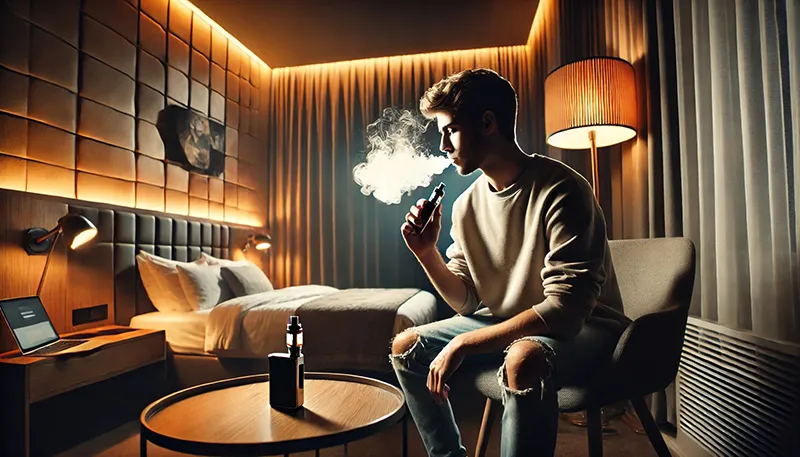
Can You Vape in a Hotel Room? A Guide for Travelers, Vapers, and Hoteliers
2024-09-19

Vape Legal and Regulatory Weekly Report - September 14, 2024
2024-09-14
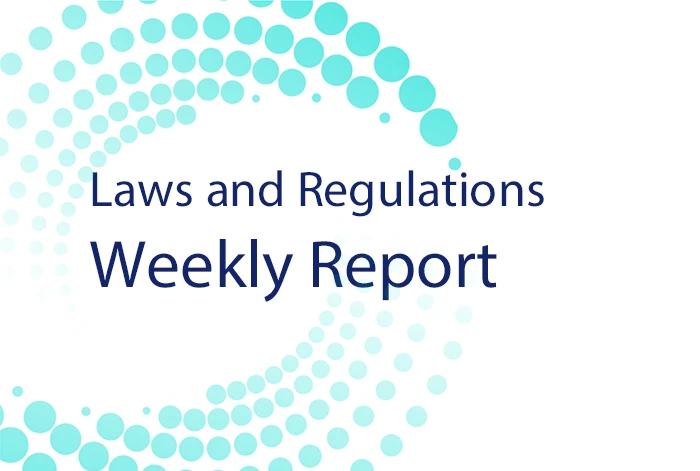
Vape Legal and Regulatory Weekly Report - September 9, 2024
2024-09-09

Vape Legal and Regulatory Weekly Report - September 2, 2024
2024-09-02
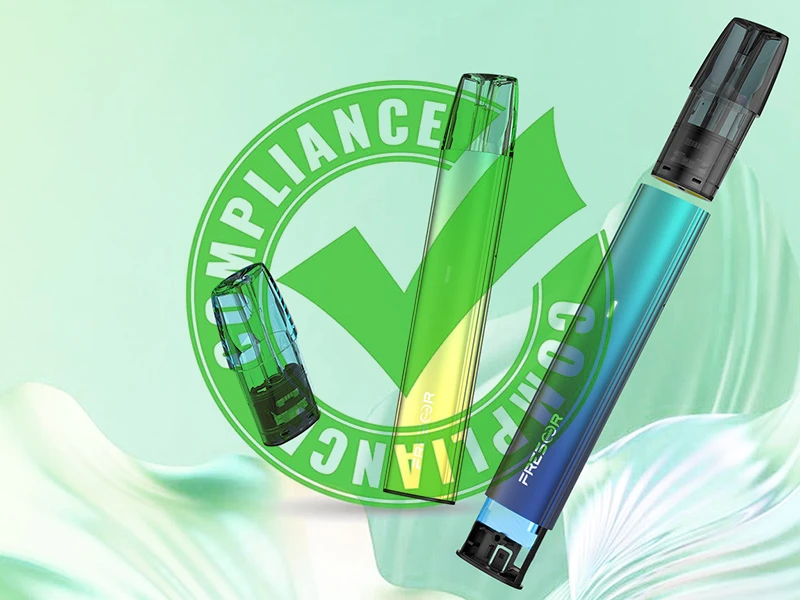
Vaping Laws in Germany: An Update on What You Need to Know
2024-08-12

